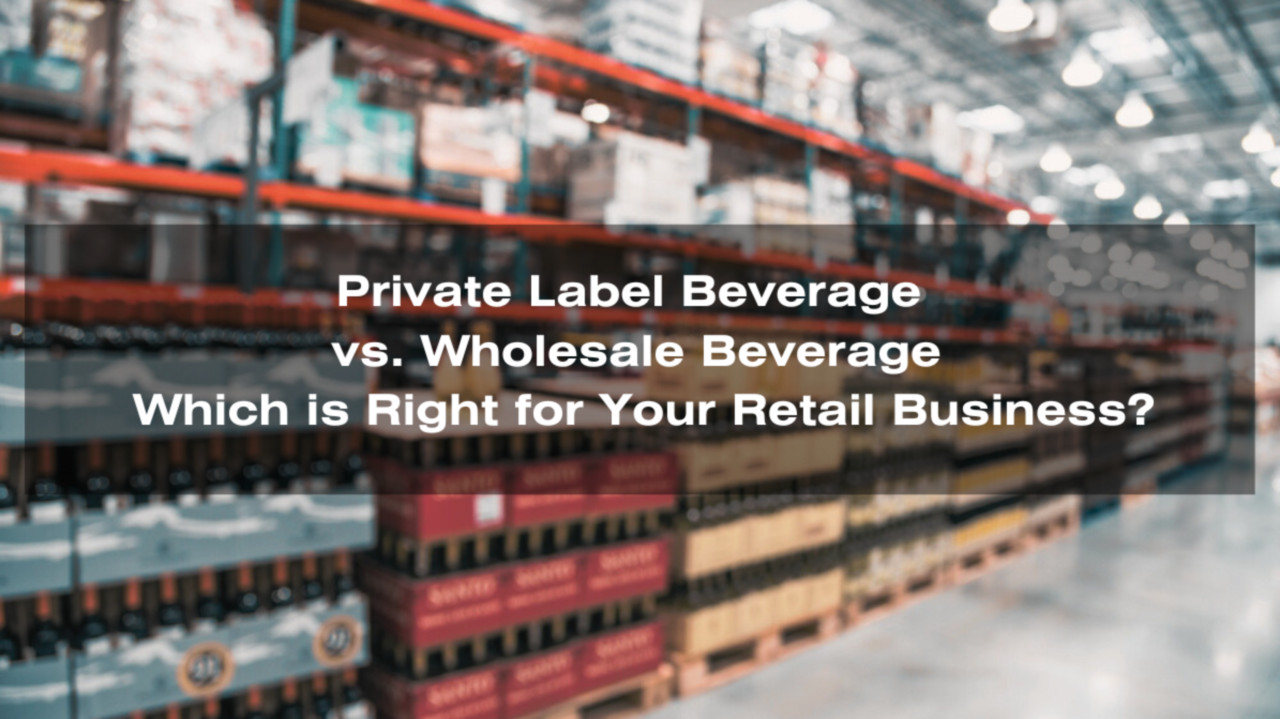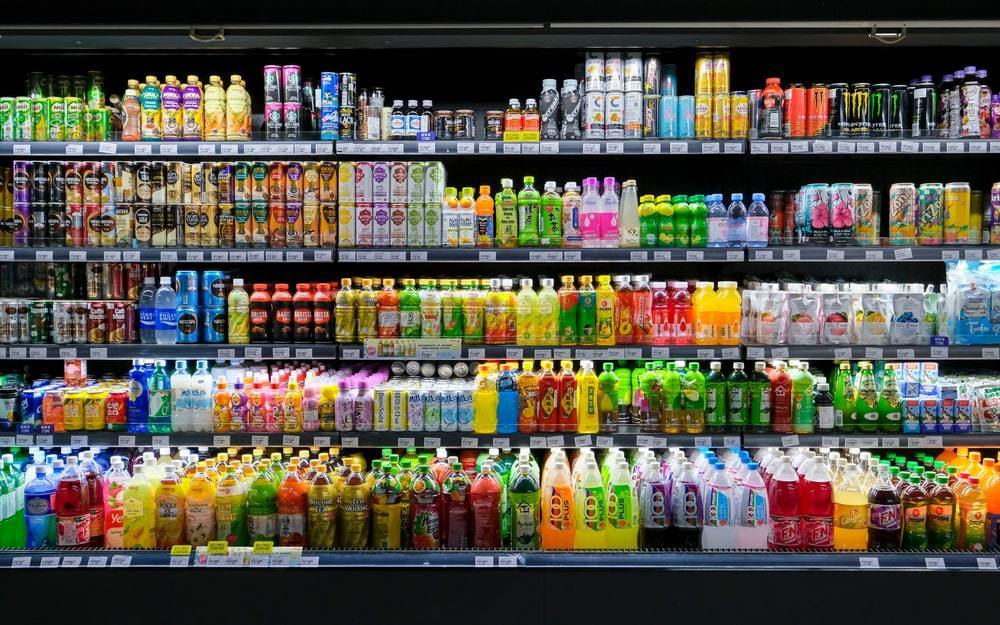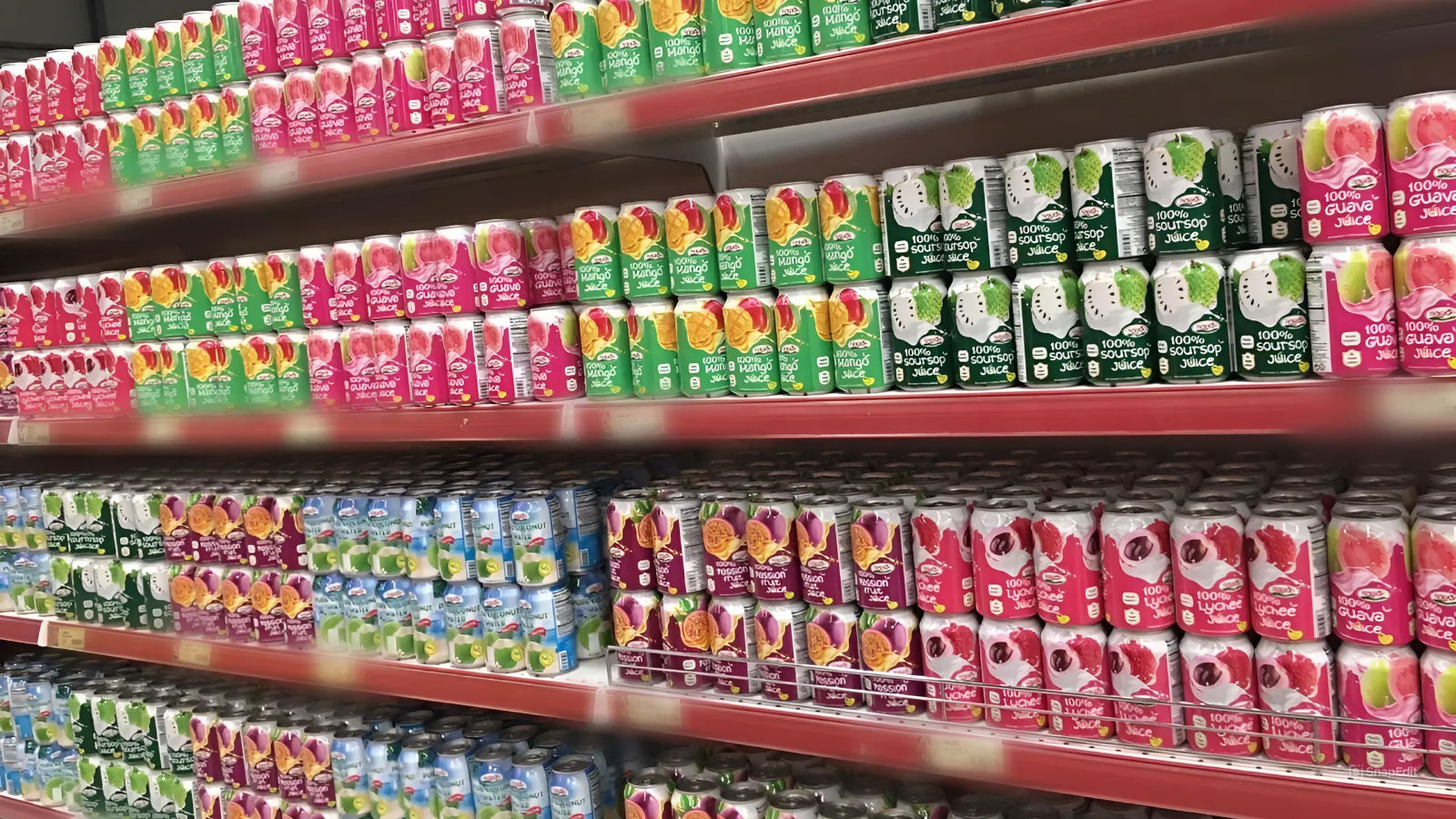In the ever-evolving world of retail, your choices regarding the products you offer can significantly impact your business’s success. Regarding beverages, retailers often face a critical decision: Should they choose private-label beverages or wholesale beverages? In this article, we’ll delve deep into the pros and cons of each option to help you make an informed decision that aligns with your business goals.
Learn about the concept of private label beverages and wholesale beverage
What are private label beverages?
Private-label beverages are manufactured by one company but marketed under another brand. These beverages are typically sold in retail stores or online and priced lower than comparable branded products.
A more straightforward way to think of it is that a supermarket chain might sell a line of fruit juices under its brand name even though an outside manufacturer manufactures the products.
What are wholesale beverages?
Wholesale beverage sales refer to distributing large quantities of beverages such as sparkling drinks, juice drinks, alcoholic beverages, bottled water, and other beverages to retailers, restaurants, bars, and other businesses. Wholesalers act as intermediaries between manufacturers and end-users, helping to facilitate the supply chain.
You can think of it as a wholesaler who sells products from a manufacturer and then receives the manufacturer’s markups. You take those products and supply a local grocery store with various soft drinks, craft beers, and bottled water in bulk.

The main differences between private label beverages and wholesale beverages
Next, let’s clarify the main difference between private label beverages and wholesale beverages.
Branding
In the case of private label products, the beverage is associated with the retailer’s brand or a specific label created for that product line, allowing retailers to offer unique products that distinguish them in the market.
On the other hand, wholesale beverages typically retain the manufacturer’s brand name and are sold as they are, showcasing the original branding and identity established by the manufacturer. This distinction influences how consumers perceive and choose beverages in the marketplace.
Pricing
Private label products are often priced more affordably than products on the market. This allows retailers to offer competitive prices and appeal to price-sensitive consumers.
In contrast, wholesale prices are typically lower than retail prices but can vary depending on the brand and specific purchase terms.
The focus in wholesale transactions is on purchasing in bulk, allowing businesses to stock products at lower costs while still considering brand recognition and market demand.

Customization
Private label products allow retailers to customize flavors, formulations, and packaging to align with consumer preferences and trends. This flexibility enables retailers to create unique offerings that cater to their target market.
In contrast, wholesale products are generally standard offerings from manufacturers, with little to no customization options available. This means that retailers purchasing wholesale products must rely on the existing formulations and packaging established by the manufacturer.
Distribution
Distribution for private label products is typically exclusive to the retailer’s outlets or platforms, ensuring that these products are only available through their specific channels. This exclusivity can enhance brand loyalty among consumers who associate the product directly with the retailer.
In contrast, wholesale products are distributed to a wide range of retailers, restaurants, and businesses, often encompassing a variety of brands. This broader distribution strategy allows wholesale suppliers to reach a larger audience and cater to diverse market needs.

Which is right for your retail business?
Deciding between private label and wholesale beverages is crucial for retailers in their entrepreneurial journey. It directly affects the entire business operations that follow.
To make the right choice, consider the following factors:
Business strategy
Your overall business strategy should align with your choice. If you seek to create a unique brand identity and cater to a specific market segment, private label beverages may be the way to go. However, if you prefer a lower-risk approach with established brands, wholesale beverages might suit your strategy.
Resources
Assess your available resources, including budget and manpower. Private label beverages require more significant initial investments in product development and marketing. Ensure you have the resources to support your choice.
Target audience
Your target audience plays a critical role. Do they value exclusivity and unique offerings, or are they more price-conscious and brand loyal? Understanding your customers’ preferences can guide your decision.
Competition
Evaluate the level of competition in your niche. If it’s highly competitive, private label beverages can help you stand out. In less competitive markets, wholesale beverages might suffice.
The choice between private label and wholesale beverages is crucial for retailers. Each option has advantages and disadvantages, and the right choice depends on your business goals, available resources, target audience, and competitive landscape. By carefully considering these factors, you can make an informed decision that propels your retail business toward success.
